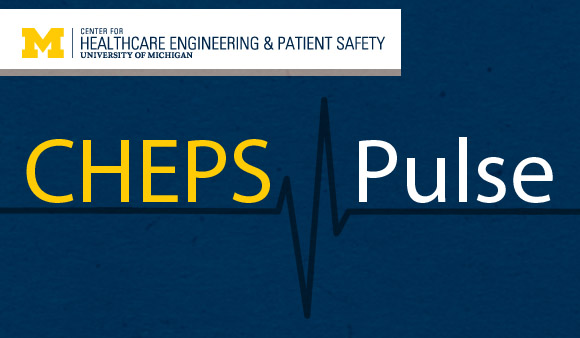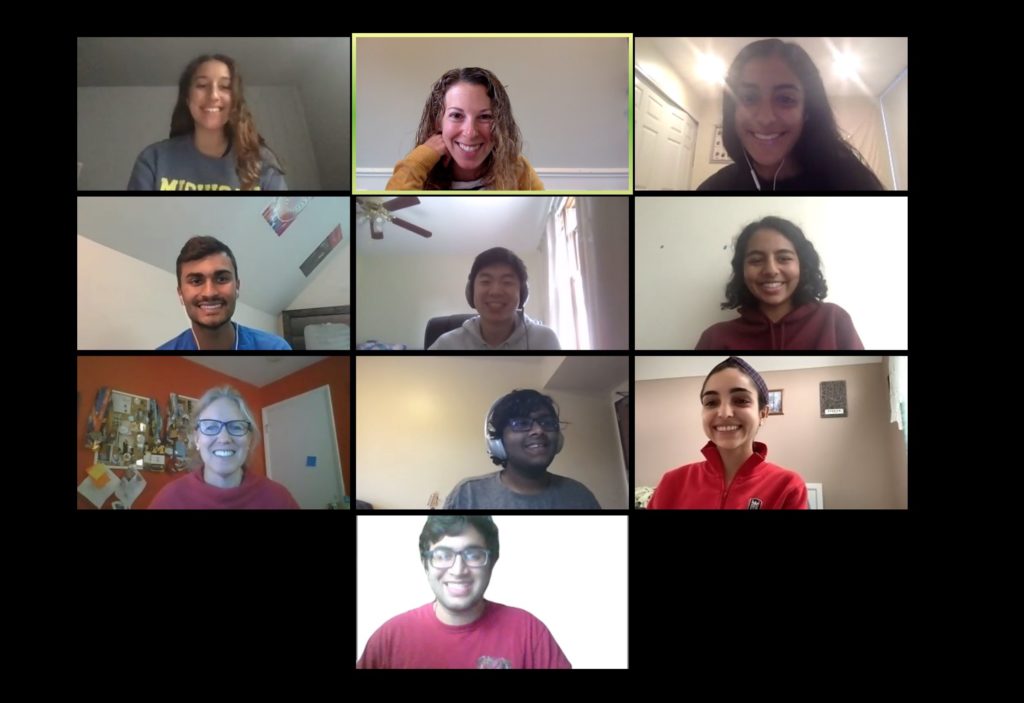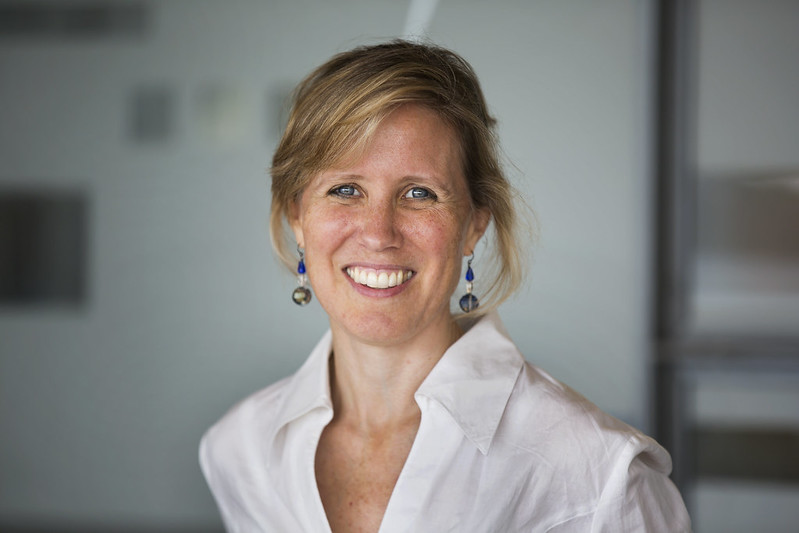
In This Issue
- How Healthcare Engineering Helped Improve Prenatal Care
- Amy Cohn Appointed Michigan Medicine’s Chief Transformation Officer
- Recent News
- Fall 2021 Providing Better Healthcare Through Systems Engineering Seminars
- Student Blog
How Healthcare Engineering Helped Improve Prenatal Care
Tailored Prenatal Care
Since 1930, prenatal care guidelines in America have recommended a one-size-fits-all model with 12-14 in-person visits, regardless of individual patients’ psychosocial and medical risk factors. Recognizing that each patient has unique individual needs, CHEPS collaborator Dr. Alex Peahl worked with CHEPS students to understand how tailoring care would affect access to care. The team has developed a score using electronic health record (EHR) data to sort patients into four prenatal care phenotypes based on their risk factors. Now, they are analyzing data to understand how implementing tailored prenatal care schedules affects usual clinic operations, including patient delays and appointment availability.
Using Simulation to Test Prenatal Care Pathways
A successful plan needs to keep clinical operations running smoothly. The CHEPS Prenatal Team was able to help Dr. Peahl by building a simulation to show how enacting tailored prenatal care would affect clinic operations. The model simulates patient flow through the prenatal care system. Based on data analysis done at CHEPS, the team knew the probability of a patient being high-risk or low-risk so they were able to classify the simulation’s patients as they entered the system and designate which prenatal care pathway they would take. The CHEPS team then simulated an appointment, the scheduling of the next appointment, and so on, following the process through until the patient had completed their care. Some pathways are completely in-person while others incorporate some telehealth. The model demonstrates how the new pathways and incorporation of virtual care impact the system operationally.
After running the simulation, the CHEPS team was able to measure factors such as how many patients were delayed and by how much as well as how often there was overbooking due to capacity limits, or if any capacity went unused. Industrial and Operations Engineering Ph.D. student Leena Ghrayeb explained, “The idea is if we’re able to show that these new care pathways have similar or better outcomes than the current model, then we can justify adopting this new care model.” And the simulation did in fact show improvement in operations when these new prenatal pathways were implemented.

Providing Safe Care During the Pandemic
Dr. Peahl’s work proved invaluable when the COVID pandemic hit and Michigan issued a stay-at-home order starting March 20th, 2020. “We redesigned the entire prenatal care plan [for Michigan Medicine] almost overnight,” said Dr. Peahl. “We rapidly had to change how we were doing prenatal care. We used reduced in-person visit schedules and telemedicine to help keep patients safe. We were really well-positioned to implement those new models at Michigan Medicine because we had been thinking about how to redesign prenatal care since before the pandemic. A big part of that had been explored through the CHEPS work, which directly informed our care model during the pandemic.”
Making a Positive Difference
The change to prenatal care at Michigan Medicine has received good feedback from patients and providers. A recent survey of patients and providers showed high satisfaction scores and high perceived safety. Many patients and providers believe the new models provided improved access to care. Dr. Peahl said the survey also helped her see where the pathways could be improved. For example, it was crucial to have home devices, specifically a blood pressure cuff which is now a mainstay of any path with a virtual component.
“We also learned that the model wasn’t right for everyone. Patient choice is a crucial piece, outside of the acute pandemic when reduced viral exposure isn’t the only concern,” said Dr. Peahl. As an example, she noted a difference between patients in their first pregnancy not knowing what to expect and wanting more in-person guidance as opposed to patients in their second pregnancy or beyond who were much more comfortable with virtual care. Thinking about how to best support patients going through their first pregnancy is an important part of the model.

Bringing About Change Through Collaboration
Because of the work done at Michigan, the American Association of Obstetricians and Gynecologists invited Dr. Peahl and her team to help revise their prenatal care guidelines. A panel codified a lot of the procedures that Michigan Medicine used during COVID. That plan, named “The Plan for Appropriate Tailored Care in Pregnancy” is now the national standard of prenatal care. This is the first update to recommended prenatal care guidelines in the United States since the 1930s.
In addition to being encouraged by the impact of this work on patients locally and through the nationwide adoption of tailored prenatal guidelines, members of this project found the collaboration rewarding. Leena appreciated the chance to bring her engineering skills to a project that could have such a positive effect on patients. She said, “I’m proud of it all. It’s such an important project because of the fact that it has such heavy implications. We know that there’s a disparity in terms of maternal mortality and things like that based on race and one of the reasons is that we’re not taking into consideration medical and social risk factors. So the fact that we get to be a part of this huge policy change is mind-blowing. And I’m very grateful and humbled to be a part of it.”
Likewise, Dr. Peahl said, “It is such a joy every time I work with CHEPS. Having an engineer’s perspective of medicine is so critical to thinking about delivering care in a different way. Often in medicine, we just continue doing what we’ve always done because of dogma or practice. The engineers’ questions are so insightful – why does a patient see a nurse and then the provider? Or why do they enter the pathway in this pattern? Why is this visit at this point? Those really insightful questions have helped me to rethink the way we deliver care and ways that we might do things better.”
Thank you to Claire Dawson, Dipra Debnath, Stephanie Ganzi, Leena Ghrayeb, Samuel Hocher, Meghana Kandiraju, Amanda Naccarato, Harini Pennathur, Nicholas Zacharek, and all prior CHEPS students who have contributed to this work. More information about the project is available on our website.
Amy Cohn Appointed Michigan Medicine’s Chief Transformation Officer

CHEPS Faculty Director Amy Cohn has been appointed as Michigan Medicine’s Chief Transformation Officer. In an announcement about this appointment, Dr. Marschall S. Runge, Dean of the University of Michigan Medical School, Executive Vice President for Medical Affairs for University of Michigan, and CEO of Michigan Medicine, said, “She will lead a health care operational engineering team that will collaborate with executive leadership to define project priorities, provide rapid response to critical operational events, and improve outcomes by studying and implementing process re-design and enhancements.” In his announcement, Dr. Runge emphasized the many contributions Professor Cohn has made to the COVID-19 response at the University and Michigan Medicine including her work on testing, vaccinations, and the ResponsiBLUE app. He stated, “Her ability to drive large and complex projects, many new to our organization, and her unique engineering perspective were the predominant factors that led us to create the Chief Transformation Officer appointment.”
“This role is going to help me work with leadership to identify the most challenging problems facing Michigan Medicine and healthcare systems across the nation and get students intimately involved in solving those problems,” Professor Cohn said.
Congratulations to Professor Cohn on this new position! We know it will give her many opportunities to continue making a positive difference here at the University, Michigan Medicine, and beyond.
Recent News
- Seminar with Dr. Sreenath Chalil Madathil, 11/22/21
- CHEPSters Visit the U of M Clinical Simulation Center, 11/18/21
- Seminar with Dr. Oluwaferanmi Okanlami, 11/15/21
- CHEPS Faculty Director Amy Cohn Appointed Michigan Medicine’s Chief Transformation Officer, 11/11/21
- Lunch and Learn with Dr. Andrew Rosenberg, 11/10/21
- Seminar with Alexander K. Hallway and Dr. Michael Englesbe, 11/8/21
- Seminar with Dr. Michael W. Carter, 11/1/21
- CHEPS at INFORMS 2021, 11/27/21
- Northwestern Medicine Lunch and Learn, 10/25/21

We will all require healthcare services at some point in our lifetime and we all live in an economy impacted by astronomically rising healthcare costs. This series consists of weekly seminars given by leading scholars in healthcare engineering and patient safety. See our 2021 seminar schedule here.
CHEPS Student Blog Posts
CHEPS students blog to share life at CHEPS from the student perspective.

“The turning point in my college career was summer 2020 when I worked on a COVID-19 response project through CHEPS. The project was called OPS REVAMP, and it focused on accounting for the backlog of elective surgeries incurred by the effects of the COVID-19 pandemic. This work was crucial because all non-essential procedures were delayed in the hospital when the COVID pandemic began and, even minor procedures, when delayed, can become more serious for the patient. In addition, this caused immense backlog and strain on providers. Being able to meaningfully contribute during a time of uncertainty for society was very rewarding.” – Nicholas Zacharek
- Nicholas Zacharek, Industrial & Operations Engineering Undergraduate
- Surgical Competency Team
- Prenatal Team
- Shift Scheduling Team
- Leena Ghrayeb, Industrial and Operations Engineering Ph.D. Student
- Adam VanDeusen, Industrial and Operations Engineering Ph.D. Student
- Emmett Springer, Biomedical Engineering Undergraduate
- Sebastian Munoz, Industrial & Operations Engineering Undergraduate
- Pushpendra (Ishu) Singh, Industrial & Operations Engineering Master’s 2020
- Dean Golan, Industrial & Operations Engineering Undergraduate
- Matt Howard, Industrial and Operations Engineering Undergraduate
- Luke Liu, 2020 Industrial & Operations Engineering B.S.
- Renata Terrazzan, Public Health Undergraduate
- Alli VanderStoep, Industrial & Operations Engineering Master’s Student
- Ziqi Wang, IOE/HEPS Master’s Student
- Carolyn Wu, Informatics Undergraduate
- Kristine Wang, 2020 Computer Science B.S.
- Nicholas Zacharek, Industrial & Operations Engineering Undergraduate
- Matt See, 2020 Chemistry B.S.
Center for Healthcare Engineering & Patient Safety | University of Michigan
[email protected] | cheps.engin.umich.edu

